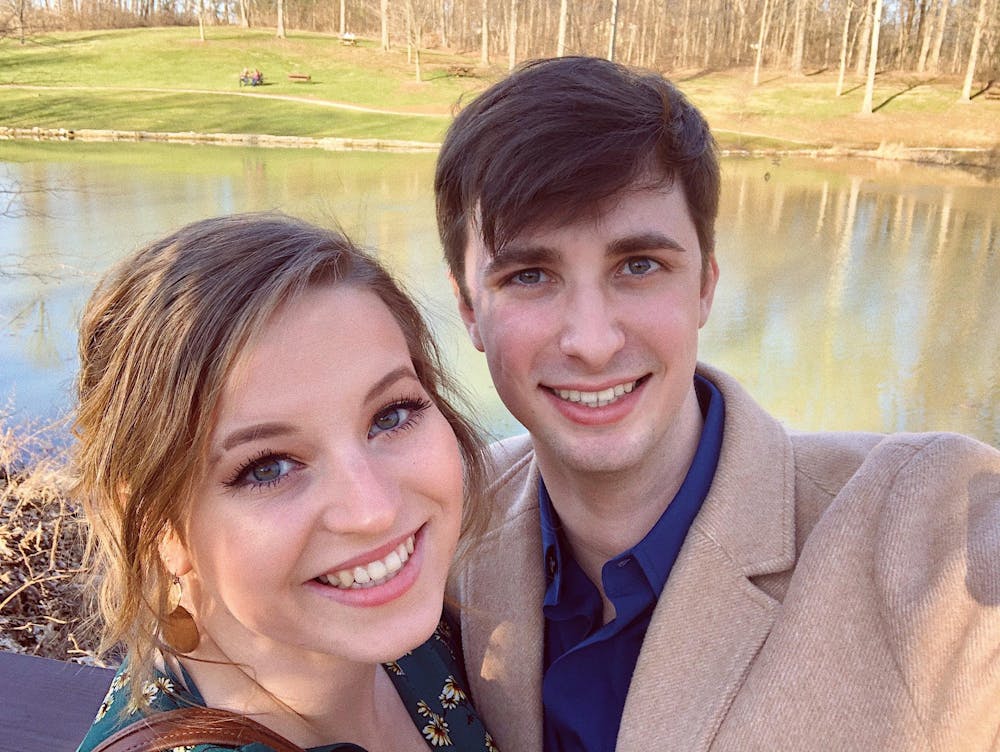Senior nursing student Jada Boyer contracted COVID-19 after being exposed to a patient with the virus while working at IU Health Bloomington Hospital. Boyer works as a patient care assistant and was exposed while triaging a patient.
Boyer had a fever, chills and shakes for a week before she began to recover.She said she was the sickest she has ever been. She was quarantined with her boyfriend Will Cox, who is also a nursing student and got coronavirus. Though they cannot be positive how they contracted the virus, Cox began showing symptoms a few days after Boyer was exposed. His symptoms were more mild than Boyer’s.
One of the worst moments for Boyer was a night she couldn't sleep because her breathing kept stopping.
“I wasn’t sure if I was going to be able to catch my breath,” Boyer said.
Boyer considers her case of coronavirus as moderate and said it was better than she expected after she first tested positive.
She was told to take Tylenol to cope with the symptoms and she tried to drink lots of orange juice and other fluids and eat when she could. As a nursing student, she knew that her body was using more energy because it was having trouble breathing.
Boyer didn't go to the hospital. She said she knew what patients who needed to be hospitalized looked like, and that wasn't her.
“I knew how precious the space in the hospital was,” Boyer said.
Boyer found support through the care packages that were sent to her by her friends and family.
The hospital also supported both Boyer and Cox by providing health care professionals who checked in on them and who they could talk to if they were especially concerned about their symptoms.
“I was really grateful for all the support people gave me,” Boyer said.
After being a patient herself, Boyer said her perspective has been widened about what her patients are going through. She said she felt both isolated and not, using technology to talk to loved ones but knowing they couldn't relate to her experiences.
The same day that Boyer received her positive test results, Cox began showing symptoms. Though Cox also tested positive for coronavirus, his symptoms were not as bad as Boyer's.
“You wouldn’t have known we had the same thing,” Cox said.
He said he never had a fever or aches and describes his experience as similar to a bad head cold. While he was sick he tried to help Boyer by washing the bed sheets she was using since she was feeling worse than him.
“I wasn’t really worried, but I was anxious,” Cox said.
Though they were sick throughout April, both Boyer and Cox were able to finish their coursework and take exams. Boyer said it was important for her to do as much coursework in the afternoon as she could because that was the time of day she knew she’d have the most energy.
Cox said all of his professors offered to be flexible with deadlines.
When Boyer and Cox went back to work in the hospital, they wanted to play it safe and were told to take it slow after the hospital cleared them to come back. They did this by starting out with shorter shifts at the hospital instead of their usual 12-hour shifts.
Dan Handel, IU Health South Central Region chief medical officer said they follow the Centers for Disease Control and Prevention's guidelines when allowing their staff members to come back to work. This means being isolated for at least 10 days since the symptoms first appeared and being asymptomatic for three days.
From his and Boyer's experience having the virus, Cox said he thinks the public should trust what health officials say.
"I think people should take it seriously," Cox said.




